ESTABLISHING QUALITY STANDARDS IN HIGH RISE BUILDING IN ACCORDANCE TO PRE, DURING AND POST CONSTRUCTION
S. Kamini Kowsalya1, Rajalakshmi 2 , V.Vidya 3M.Arch (construction project management) student, Faculty of Architecture, Dr .M.G.R Educational and Research Institution, Chennai, India.
2 Associate Professor, Faculty of Architecture, Dr .M.G.R Educational and Research Institution, Chennai, India. ***

Abstract - The ideas of proactiveness and generating a win-win situation are essential at every stage of the project life cycle while keeping in mind the needs of the client or customer in mind. Quality has a significant impact on the predicted result. Checklists are the main instrument for assessing quality. Examining the checklists used today for high-rise structures that are at various stages of development, such as pre- construction, Construction, and post- construction , to determine how the quality of a project is trailing is likewise being handled in support of the end user survey. An in-depth knowledge base and experience managing organisations are necessary to manage a project of this nature. Therefore, how a project management consultancy contributes significantly to a project's success will be discussed, as well as the difficulties theyencounterandsolutionstothemisalsodealt..
Key Words: Quality, Pre, during and post construction, project management consultant, Checklists.
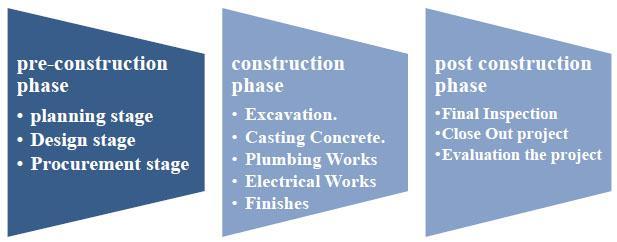
1. LITERATURE REVIEW
Theprimarystagesoftheproject:
1.Preconstruction
2.Duringconstruction
3.Postconstruction
2. METHODOLOGY
Tounderstandqualityissuesinhighrisebuilding.
Reviewandanalyzeexistingchecklistinallphaseof theproject.
ComparisonofprojectswithandwithoutProject managementconsultant.
Toproduceanendusersurveyensuringqualityas keyaspect
Toproposecheckliststoenhancetheprojectoutput
3.
HOW
QUALITY IS MEASURED IN HIGH RISE BUILDING :
Inspection and Testing: This involves conducting regular inspectionsandtestsatvariousstagesoftheconstruction process to ensure compliance with design specifications and regulatory requirements. This can include testing the strengthofmaterialsused,inspectingstructuralelements, checkingthequalityoffinishes,andsoon.
Quality Control Checklists: These are lists of specific quality criteria that need to be met at different stages of the construction process. These checklists can be used to ensure that all critical elements are checked and that the necessaryqualitystandardsarebeingmet
Documentation and Records: This includes keeping track oftheconstructionprocess,materialspecifications,design drawings, inspection reports, and any other relevant information.
Compliance with Standards: Compliance with relevant codes, standards, and regulations is critical to ensuring qualityinhigh-risebuildingconstruction.Thesestandards mayincludebuildingcodes,firecodes,andenvironmental regulations,amongothers.
FeedbackfromStakeholders:Feedbackfromstakeholders, including owners, architects, engineers, and construction workers, can provide valuable insights into the quality of construction. This feedback can be obtained through surveys, interviews, or other methods and can be used to improvefutureconstructionprojects.
KPIs are performance metrics that evaluate the achievementofgoalsorbenchmarks.Inhigh-risebuilding construction quality, the following KPIs are commonly used:
TheConstructionQualityIndex(CQI)measuresthequality of construction, evaluating aspects such as materials, workmanship,safety,andcompliancewithstandards.
Defect Density is the number of defects per unit of construction, including those in materials, workmanship, ordesign.
Schedule Variance measures the deviation between the planned and actual progress of a project, with a positive value indicating ahead of schedule and a negative value behindschedule.
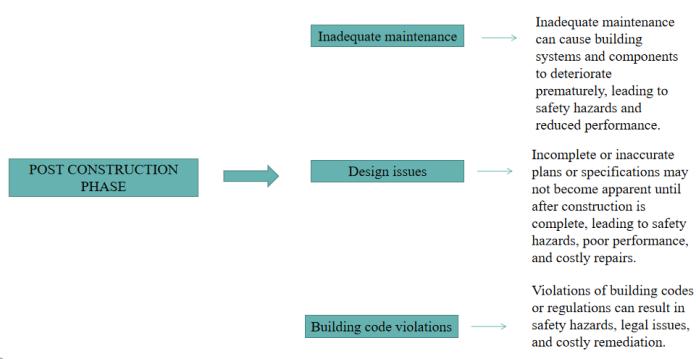
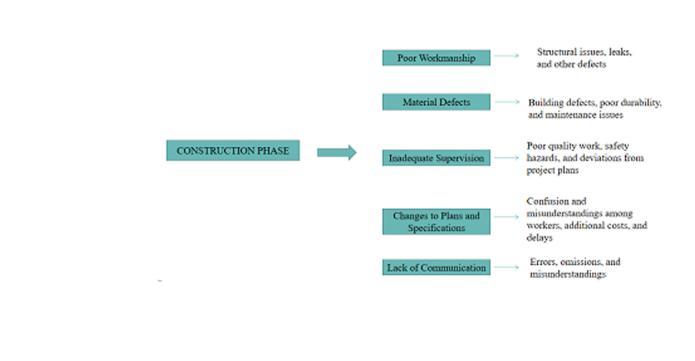
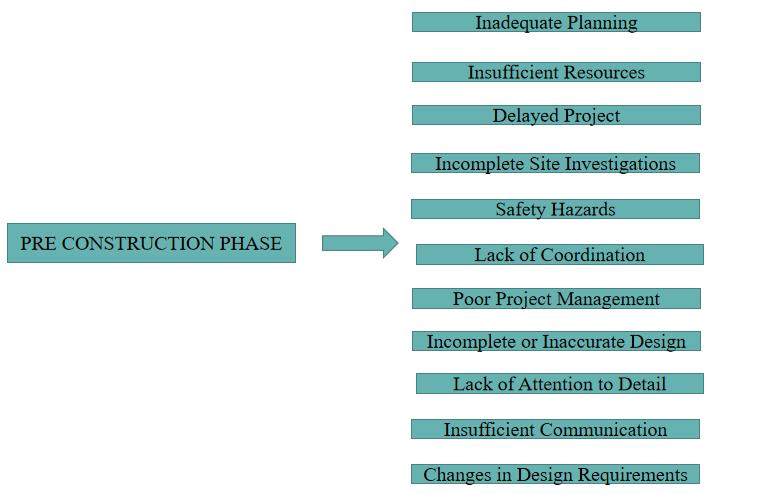
Cost Variance measures the difference between the planned budget and actual cost of the project, with a positive value indicating under budget and a negative valueoverbudget.
Safety Incident Rate measures the number of safety incidents per unit of construction work, including accidents,injuries,orothersafety-relatedincidents.
4. QUALITY STANDARDS THAT ARE FOLLOWED IN HIGH RISE BUILDINGS :
ISO 9001: This is a quality management system standard that outlines the requirements for managing and improving quality in all aspects of the construction process.
ASTM Standards: These are standards developed by the American Society for Testing and Materials that cover materialsandtestingmethodsforconstruction.
ACI Standards: These are standards developed by the American Concrete Institute that cover the design, construction,andtestingofconcretestructures.
ASCE Standards: These are standards developed by the American Society of Civil Engineers that cover various aspectsofcivil engineering, including building design and construction.
5. ISO 9001 quality standard for high-rise building construction:

Quality Management System: Implement a quality management system that is appropriate for the scope of theconstructionproject.
Leadership: Provide leadership and commitment to the quality management system, and ensure that the necessary resources are available to achieve quality objectives.
Planning: Plan and implement a quality management system that addresses the needs and expectations of stakeholders,includingclients,contractors,andregulatory agencies.
Support: Provide the necessary resources and support to ensurethatthequalitymanagementsystemiseffective.
Operation: Implement quality control procedures during construction to ensure that work is done in accordance withthedesignandqualityplan.
Performance Evaluation: Monitor and measure the performance of the quality management system, and take correctiveactionasnecessary.
Improvement: Continuously improve the effectiveness of the quality management system through the use of data andfeedbackfromstakeholders.
CompliancewiththeISO9001qualitystandardcanhelpto ensure that high-rise building construction projects meet quality objectives, are completed on time and within budget,andaresafeandfunctionalfortheirintendeduse.
Projectmanagementisimportantbecauseitensureswhat is being delivered, is right, and will deliver real value againstthebusinessopportunity.
Whyisprojectmanagementimportant?
Stratergic alignment : Project management is important because it ensures what is being delivered, is right, and willdeliverrealvalueagainstthebusinessopportunity.
Leadership :Project management is important because it bringsleadershipanddirectiontoprojects.
Clear focus & objectives : Project management is important because it ensures there’s a proper plan for executingonstrategicgoals.
Realistic project planning : Project management is important because it ensures proper expectations are set around what can be delivered, by when, and for how much.
Qualitycontrol:Projectmanagementisimportantbecause it ensures the quality of whatever is being delivered, consistentlyhitsthemark.
Risk management : Project management is important because it ensures risks are properly managed and mitigatedagainsttoavoidbecomingissues.
Orderly process :Project management is important because it ensures the right people do the right things, at the right time
it ensures proper project management processisfollowedthroughouttheprojectlifecycle.


Continuous oversight: Project management is important because it ensures a project’s progress is tracked and reportedproperly.
COLLAPSEOFTRUSTMOULIVAKKAMTOWER, PORUR:
Themostcommoncausesattributedforbuildingcollapse are:
1.Thefoundationsaretooweak
2. The building materials are not strong enough – quality deficiency
3.Humanerrors
4.Theloadisheavierthanexpected&
5.Thestrengthisnottested
GrossViolationsonlyCausedtheCollapse
The foundation's structural design, which included a raft and pile, was insufficient to support the combined weight ofthebasement,stilt,and11-storybuilding.Thebuilding's collapse was mainly due to significant deficiencies in the reinforced concrete columns' structural design, which blatantlydisregardedtheNationalBuildingCodeofIndia's requirements for structural design. Furthermore, the columns were not designed tosupport the weight of such a massive structure. The accused's foundation design did not consider the soil conditions at the site, and it was woefullyinadequateforconstructing an11-story building that would remain stable. Additionally, the improper detailing of the reinforcement, including inadequate anchorage, insufficient reinforcement length, and inadequate column titles, failed to cover the reinforcement.
The improper construction procedures for high-rise buildings, combined with a lackadaisical approach, resultedinnumerousissues.Thequalityofmaterialsused, including bricks and sand, was inadequate for tall constructions, and soil testing was not adequately conducted, especially for plots located near lakes, where the foundation is crucial. The study found that poor constructionqualityanddisregardforsoilconditionswere the primary reasons for the building's collapse, exacerbated by inadequate structural testing, alterations totheoriginalplans,substandardworkmanship,andhasty construction.
Collapseoftrustmoulivakkamtower
GaneshGunjan,GaneshAstoria
Shahberitwinbuilding
SATBuilding
Diamondbuilding
GANESHGUNJAN,GANESHASTORIA,NASHIK:
Bycomparingtwobuildings,themainqualityissueis foundanddraggedtotheconclusion:

PROJECTI:
PROJECTII

ThereforewemustWorkaccordingtotwosteps:
Proactivesteps:-Thesestepsshouldbecarriedoutbefore starting the construction work.This consist of strategic planning,sufficientfundavailable,properdesignprocess, proper management process for materials and labours, adopt training programme and quality control committee atthehighrisebuildingsite.
Reactive steps :- These steps should be carried out after quality problems arising on the site. This consist of Emergency Preparedness and Response, Monitoring and Measurement, Awareness and Competence, Records KeepingandRepairtheDefect.
SHAHBERITWINBUILDING,NOIDA
The building collapse incident happened in Shahberi village of Greater Noida on 17th July, 2018 around 9:30 p.m. There were two buildings, 10 storey completely constructed building was two year old, and another was 10 storeyunderconstruction.Thebuildingsstoodnextto eachotheronthemarshylandandwereseparated bya5 feetwideroad.Thelandof thisareaisnothardenoughto withstand heavy construction and in absence of proper system of disposal of sewage and garbage the soil has become swampy because of water logging resulting weakeningoffoundationofbuilding.Theotherreasonfor collapse was that the construction is done with the substandard building material including fly-ash bricks and pillars developing cracks even before any substantial constructiontookplace.
Thereforeitwasobserved:
Theconstructed/under-constructionbuildingshould be surveyed from hazard and vulnerability point of view.
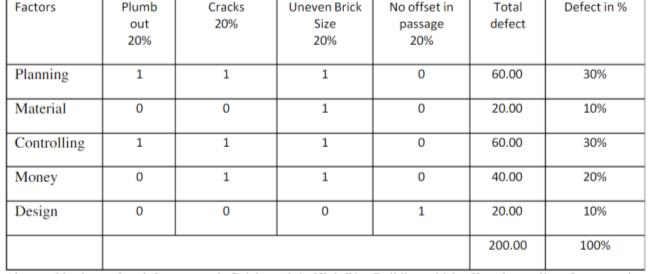
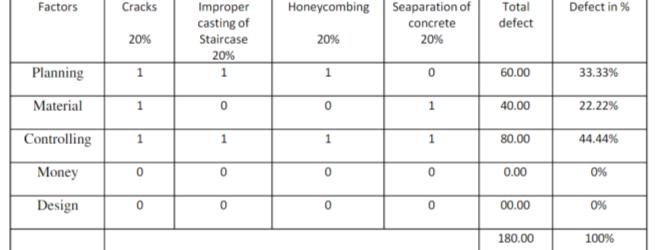

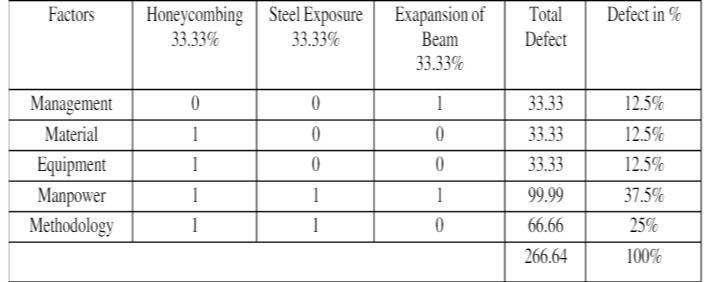
A strict action should be taken instantaneously on illegal/unauthorized construction to avoid the incidents.
Concerned authorities should check the licence and approvedplansbeforeanyconstructiontakeplaceby builders.
Structural audit of building should be done by the competent authorities. UNA authorized construction needstobetakenupasapunishableoffence.
NAME:SAT,Chennai
WINGS:A,B,C,D,E
WINGA:constructedbyusingmivantechnology
WINGB,C,D,E :Conventionalmethod(AACblocks)
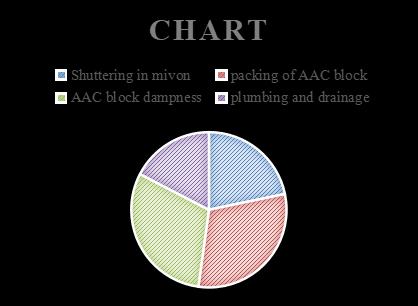
Nooffloors :19
WINGA-114UNITS
WING B,C,D,E-334Units
Checklist for shuttering in mivon technology has to be improvedandcheckedproperlyatregularintervals.Ifnot checked properly, results in problems in alignment and bulgingoccurs.CracksinjointsismostlyobservedPacking of AAC block must be done properly if not addressed dampness will be formedChecklist for AAC block dampness must be kept into considerarion Plumbing quality of pipes must be checked properly Diameter of pipesmustbecheckedproperly
NAME:Diamon,Chennai
FLOORS:13(2+3BHK)
Typology:Highriseresidential+commercial
FromtheabovestudyitwasinferedthatUnevenfinishing in many places were found which is due to improper inspection.Theworkswerestillpendingbuthandingover totheclientisdonewhichwillcreatequalityissues.
By infering the above quality issues, End user survey was conductedwithhighriseoccupants


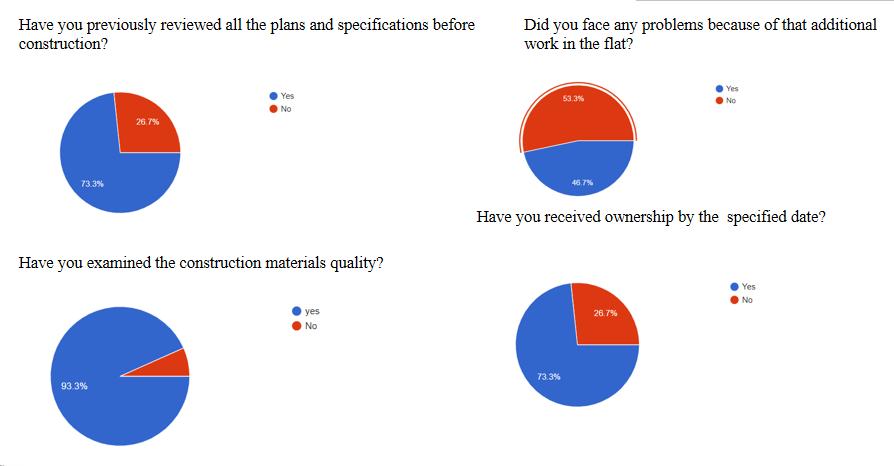

Fromtheabovepiechartsitisunderstoodthatthequality issuesinhigh-risebuildingscannotberesolvedeasilydue to the complex nature of such structures, which involves various factors such as design, materials, workmanship, and construction procedures. Additionally, rectifying quality issues in a high-rise building may require significant time and resources, which may not be feasible or practical. Furthermore, quality issues in high-rise buildings can have severe consequences, such as building collapses, putting lives and property at risk. Hence, ensuring high-quality construction from the beginning is crucialtopreventqualityissuesinhigh-risebuildings.
7 FINDINGS
Some common findings related to quality in high-rise buildings include the use of substandard or low-quality materials, poor workmanship, inadequate adherence to construction standards and codes, improper building design and layout, and insufficient attention to safety measures. Quality issues in high-rise buildings can result
in structural weaknesses, safety hazards, and other significant problems that can compromise the building's integrity and stability. Addressing quality issues in highrise buildingsrequirescareful planning, closeattention to detail, and rigorous quality control measures to ensure that the building is constructed to the highest possible standards.
8 CONCLUSION
From the above study it is infered that the importanceofqualitycannotbeunderestimated.
Though quality control is critical in construction to ensurethattheprojectmeetstandards.
It is necessary to follow proactive and reactive steps toenhancetheoutputoftheproject

Itisamainfactorinestablishingprojectsuccess.
Maintaining quality throughout the building process requires constant monitoring and attention to detail. Any issues that arise must be addressed promptly to preventfurtherproblems
Afocus on qualityin high-riseconstruction is crucial to ensure the safety and longevity of the building, as well as to protect the investments of stakeholders involvedintheproject
file:///C:/Users/kAMINI%20KOWSALYA%20S/deskt op/checklist.html
REFERENCES
1. Miles, M. B., and M. Hubberman, and J. Soldana. 2014 Qualitative Data Analysis (3rd ed.). SAGE Publication. ThousandOaks,California.
2. MinchinJr,R.E.,XiaoLi,R.R.Issa,andG.G.Vargas. 2013.“ComparisonofCostandTimePerformance of Design Build and Design-Bid-Build Delivery SystemsinFlorida.”139(10):1–5.
3. Thanveer M. Beary, Tariq S. Abdelhamid. (2005); Production Planning Process in Residential Construction using Lean Construction and Six Sigma Principles‖,Journal of Construction EngineeringandManagement(ASCE)
4. Okonkwo, V. O., Mbachu, V. M.(2009), ―A Comparative Analysis of Application of Six Sigma Project Management Technique in Small and Medium Scale Construction Companies in Nigeria‖, European Journal of Engineering and Technology,
